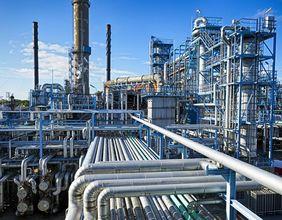For Barbara and Greg, it's important to vote this election so that like many other vulnerable Victorians, their voices are heard.
The pair now live in stable housing and have witnessed just how long it has taken some people to find a place to live.
"One of the main reasons I voted either way was looking at who was providing better housing and better opportunities for people, especially for people who are looking for places to live," Greg told AAP.
"You see so many people struggling, needing housing and they are told to wait," Barbara said.
"But how can they wait when they have no where to go?
"They are on the streets begging for food. More needs to be done."
Being homeless or in vulnerable housing does not mean someone is voteless, with a range of efforts underway to make sure every Victorian has their voice heard at the ballot box.
The Victorian Electoral Commission recently ran an early voting booth targeted at vulnerable Victorians at St Mary's House of Welcome in the inner-Melbourne suburb of Fitzroy.
St Mary's Chief Executive Robina Bradley believes making it easier for people to vote is part of the service's mission, along with providing hot showers, food and a fresh change of clothes.
"Anything we can do that makes our community feel part of society, connected and not socially isolated is a really, big important step for us," Ms Bradley told AAP.
"We add a democracy sausage sizzle in as well, so that everyone has the same feeling of voting that you would if you were popping down to the local early voting centre."
About 45 people took up the offer to cast their ballot within the past week, including Greg and Barbara who live nearby.
Ms Bradley said identification can be a major barrier for some people, as well as feeling welcome or safe enough to stand in a voting queue with hundreds of others.
The Victorian Electoral Commission ran mobile enrolment sessions at homelessness services through the year and a targeted advertising campaign with the Big Issue.
A commission spokesperson said anyone experiencing homelessness can enrol where they last lived for at least one month or where their next of kin is enrolled.
If neither of those options apply, they can be registered where they were born or where they have the closest connection.
No specific breakdown is available on those experiencing homelessness on the electoral roll, but the 2369 registered itinerant voters in Victoria include people in insecure housing and those working or travelling outside the state with no return address.
Almost 25,000 Victorians are homeless according to the most recent census data available from 2016, which includes people sleeping rough, in overcrowded housing, couch surfing or other precarious situations.
Council for Homeless Persons Chief Executive Jenny Smith said about 80 per cent of homeless people are women and children escaping violence or people under the age of 26 who can't go home.
The council and more than 60 other leading welfare services and peak bodies have written to major parties calling for an extra 5000 social housing properties to be built in the next four years and a new strategy to tackle youth homelessness.
They say about 60,000 new social housing properties are needed in the next decade to keep up with demand.
"We don't have a pipeline of social housing, we want to see that into the future and we don't yet have a commitment to that," Ms Smith said.




